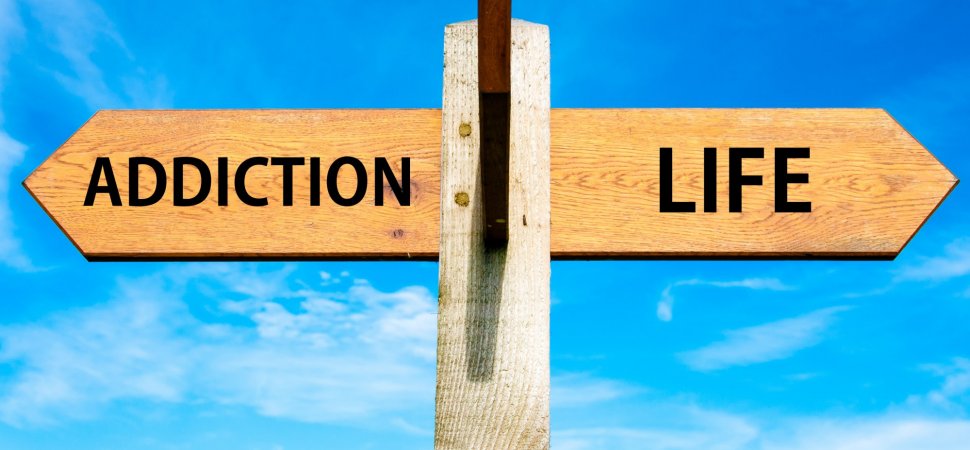
“Knowing how to be solitary is central to the art of loving. When we can be alone, we can be with others without using them as a means of escape.”
– “Bell Hooks,” aka Gloria Jean Watkins, U.S. author and academic
Ever met an alcoholic who didn’t have the faint smell of either body odor about them, or looked so smartly-dressed and well-groomed that you thought it must be their wedding day? Or how about the meth addict with the perfect gleaming smile? Now that would surely be living proof that miracles do happen…
The former addicts reading this who clawed their way into addiction recovery know what I’m talking about here. And I know what I’m talking about too, having spent most of the adult part of my young life either drunk or high or, far more normal for me, both. Excessively so. And it still wasn’t enough…
Having now been clean and sober for the best part of 8 years now, those of us who have lived through an addiction (which is no mean feat in itself), found recovery, and finally came out of the other side know only too well the importance of self-care. Because we are still doing it. Every single day. It’s an essential part of our ongoing recovery process. If you are new to addiction recovery and your new way of simply living, you need to be aware of it too.
As hard as it may seem initially, you need to learn how to fall in love with yourself again.
Addiction is overwhelming and all-consuming. It is normal for addicts to neglect themselves. They are no longer the important ones in this particular relationship. Everything is done only to meet the needs of the addiction itself. Therefore, the stress, poor nutrition, and lack of exercise that follows lead only to self-destructive behavior, and more substance abuse as a means to balance negative emotions.
Now in recovery, self-care becomes vital to long-term success. How vital was drilled into me in rehab in Tennessee, part of my ongoing recovery process? So grateful for their advice has stayed with me. So, addiction recovery is all about healthier alternatives, staying ahead of triggers and having the energy and skills to deal with negative and damaging emotions and situations. Here’s how in the form of “5 Essential Self-Caring Tips For Those in Addiction Recovery”:
#1. Physical Activity
In the early days of addiction recovery, it seems like all of your energy is being used up in simply staying sober. Any kind of exercise is literally the last thing on your mind. However, we’re not talking about going to the gym 24/7 here. Anyway, exercise creates energy.
Set time aside every day to walk around the neighborhood – no more. Get some fresh air and the sun on your face. Even mild physical activity like this will create the endorphins that will make you feel good and relieve your stress. Remember, you don’t have to do the activity alone. When you’re ready to, why not join a group, like a basketball or cycling.
#2. Improved Sleep
Taking part in physical activity is also a stepping stone to better sleep. You can help by having a regular time to sleep and to wake up. Learning relaxation techniques, like meditation, can also calm you before you hit the hay. Personally, learning mindfulness did wonders for my sleep patterns – and it’s still a daily part of my routine. Oh, and strictly no coffee after midday, at the very latest…
#3. Good Nutrition
Drug addicts and alcoholics are lucky if they get one square meal a day. It’s not usually the case. Now that you are in recovery, nutrition is something you need to focus on. You’ll never eat so well that cravings for past substances disappear, but, by getting good nutrition, you’ll put yourself both mentally and physically in a far better place when those urges do come knocking. And they will.
#4. Relax
Easier said (or written) than done, especially at the beginning of a recovery journey. However, as they say, time is indeed a great healer, and relaxation will come. To kick start the process, learning relaxation techniques will certainly help. Try yoga, meditation, and mindfulness, or, and speaking from personal experience, practice a new hobby (preferably creative in nature), such as art, gardening, or simple woodworking. Believe me, it works.
#5. Falling in Love with Yourself
As mentioned in our introduction, you need to learn how to fall in love with yourself again. Yes, another harder said than done, but addiction recovery is a long process – you have time. First of all, you will be left with a number of negative emotions – shame, guilt, angry even. The way to dispel these is to begin by forgiving yourself. Yes, your actions are your own, and you should be accountable for these in time, but never underestimate the part that addiction played in it all.
Step one. Forgive yourself. And learn to practice forgiveness.
Keep a journal. Write down your thoughts, both good and bad, positive and negative. Make lists of your accomplishments, goals, hopes. Be forgiving, understanding, and patient with yourself. You’re doing well up until now. Let it continue. Breathe and move on.
As you can clearly see, the steps needed to take care of yourself are relatively simple, but, as all habits are built on steady repetition, practice every one every day. Without fail. It’s a recovery from a chronic illness. It’s a long process, so do not feel hesitant about asking for help and support if things get tough.
So remember these:
- Physical Activity
- Improved Sleep
- Good Nutrition
- Relax
- Falling in Love with Yourself
They are the steps you need to take to practice good self-care, an essential part of any addiction recovery. What other tips would you give to those new to addiction recovery? What worked for you? Drop us a much-appreciated comment. I wish you well.